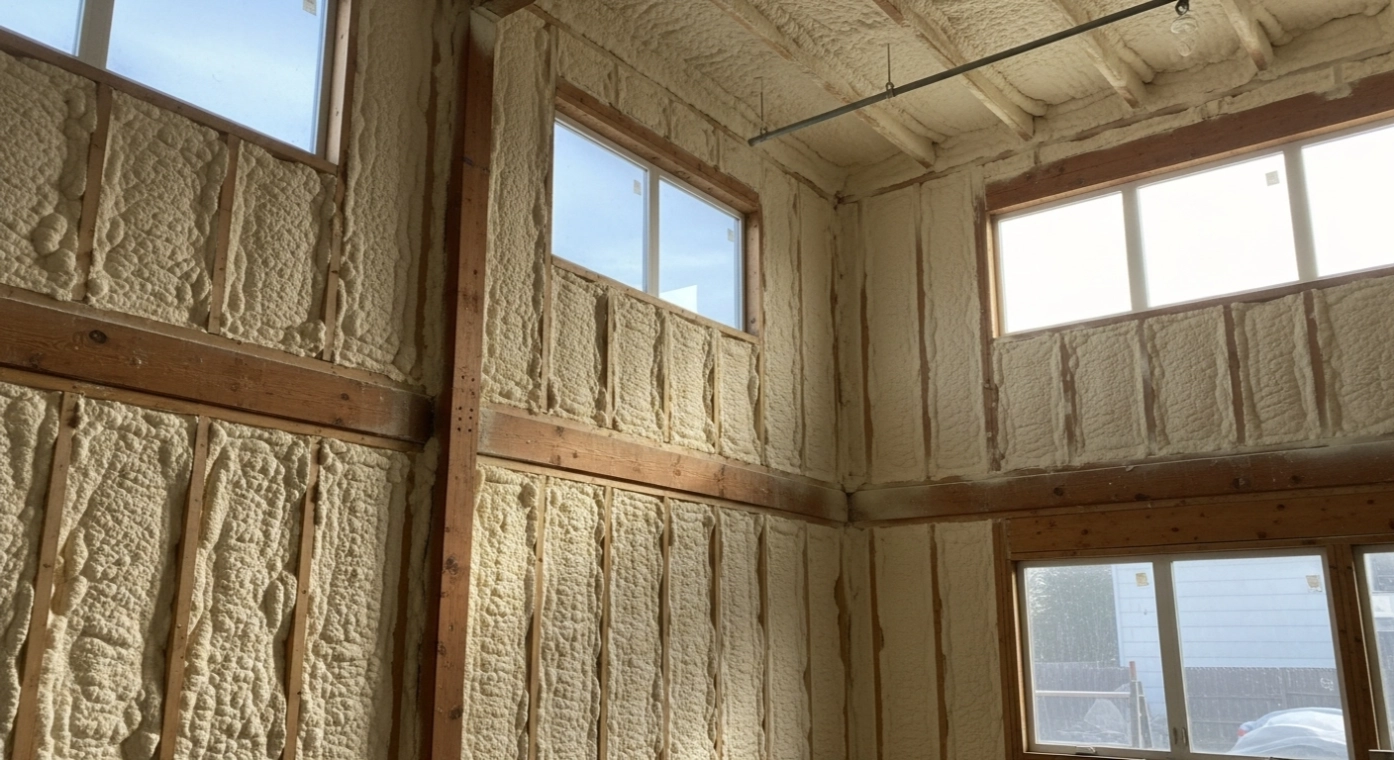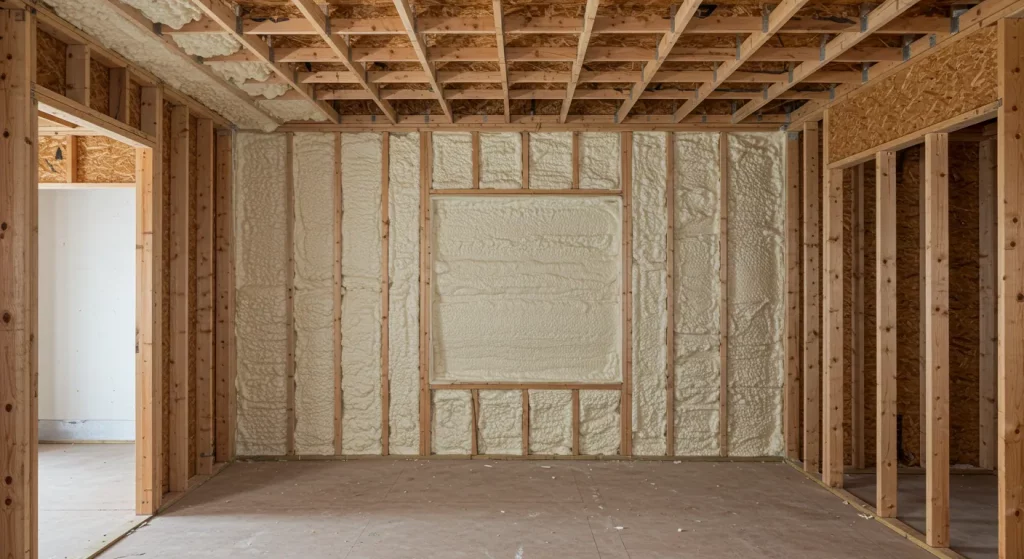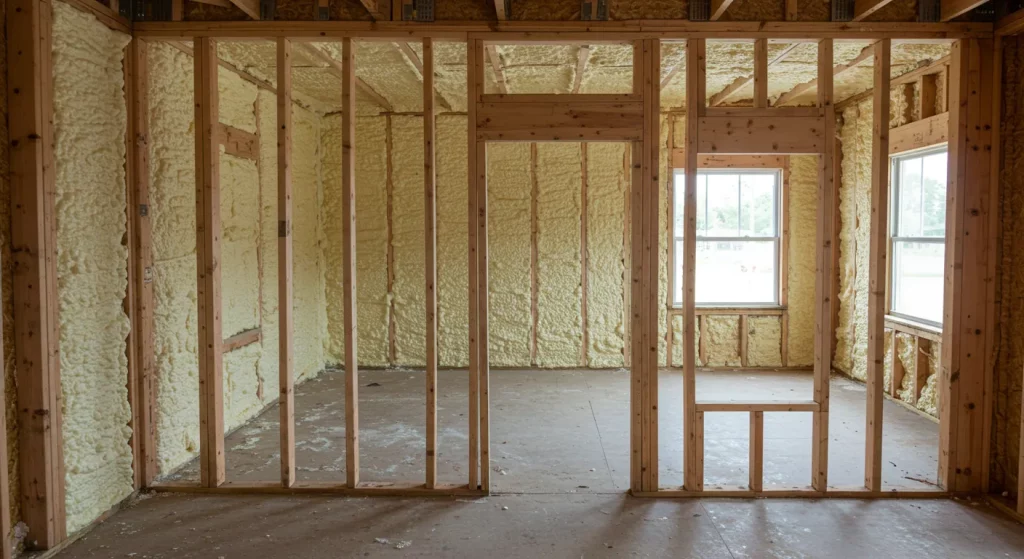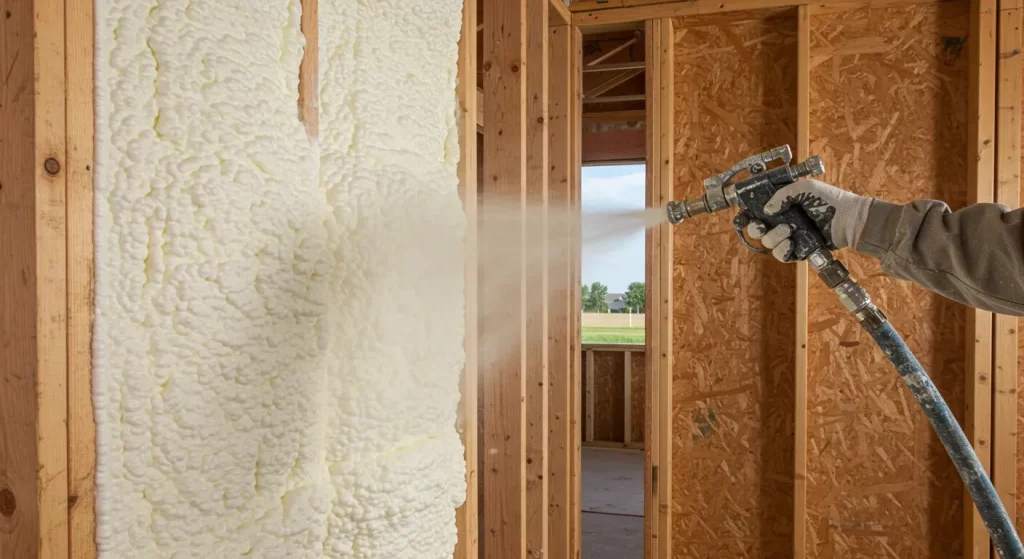Spray foam insulation performs better than other options in Raleigh, NC, because it creates an air-tight seal that controls both heat and humidity. The region’s hot summers and mild winters place consistent stress on building envelopes. Traditional insulation materials allow air leakage and moisture intrusion, which lead to uneven indoor temperatures, higher energy demand, and long-term structural issues. Spray foam insulation prevents these problems by combining thermal resistance with air and moisture control in one application.
Experience shows that spray foam delivers stable comfort across seasons, reduces HVAC strain, and prolongs building material life. Raleigh’s climate, with frequent humidity spikes and significant summer heat, makes this dual-function insulation approach more effective than loose-fill or fiberglass alternatives.
Climate conditions in Raleigh NC and insulation performance
Raleigh sits in a humid subtropical zone. Summers often exceed 90°F with high humidity levels, and winters, though moderate, bring temperature fluctuations. Insulation must therefore provide both high R-value for heat resistance and strong vapor control.
| Climate Factor in Raleigh NC | Impact on Buildings | Spray Foam Advantage |
|---|---|---|
| High summer humidity | Mold growth, wood rot, indoor discomfort | Closed-cell foam resists moisture infiltration |
| Hot summers with long cooling demand | High air conditioning costs | Both open-cell and closed-cell improve air sealing, reducing cooling loads |
| Moderate winters with temperature swings | Drafts and energy loss | Foam expands to fill gaps and prevent leakage |
| Storm-driven rain events | Water penetration risk | Closed-cell creates moisture barrier that resists water damage |
Bonus Tip: In humid climates like Raleigh, closed-cell spray foam in attics and basements greatly reduces mold risk compared to fiberglass batts.
Comparison of insulation materials in humid subtropical climates
| Insulation Type | Air Sealing Ability | Moisture Resistance | Longevity | Suitability for Raleigh |
|---|---|---|---|---|
| Fiberglass batts | Low | Poor | 10-15 years | Limited effectiveness; prone to mold |
| Cellulose | Moderate | Low | 20-30 years | Absorbs moisture; not ideal for humid climates |
| Open-cell spray foam | High | Moderate | 50+ years | Effective for walls and interior areas |
| Closed-cell spray foam | Very high | Excellent | 50+ years | Best for basements, roofs, and areas exposed to humidity |
Technical specifications of spray foam insulation
| Specification | Open-Cell Foam | Closed-Cell Foam |
|---|---|---|
| R-Value per inch | ~3.5–4 | ~6–7 |
| Vapor permeability | High | Low |
| Density | 0.5 lb/ft³ | 2 lb/ft³ |
| Water resistance | Low | High |
| Typical applications | Interior walls, soundproofing | Roofs, basements, exterior walls |
Bonus Tip: In Raleigh’s climate, open-cell foam works well for sound dampening and interior comfort, but closed-cell provides stronger protection in basements and roofing systems.
Things to check before selecting insulation
- Moisture exposure: Identify spaces prone to high humidity or leaks.
- Building use: Commercial and residential spaces have different insulation performance needs.
- Energy goals: Clarify whether the priority is cooling efficiency, heating efficiency, or overall comfort.
- Building age: Older structures may require different preparation before foam application.
Market data supports this approach: The U.S. Department of Energy reports that air leakage can account for 25–40% of heating and cooling costs in homes【DOE, 2024】. In the Southeast, homes with spray foam typically see HVAC equipment lasting longer due to reduced system cycling【EnergyStar, 2023.
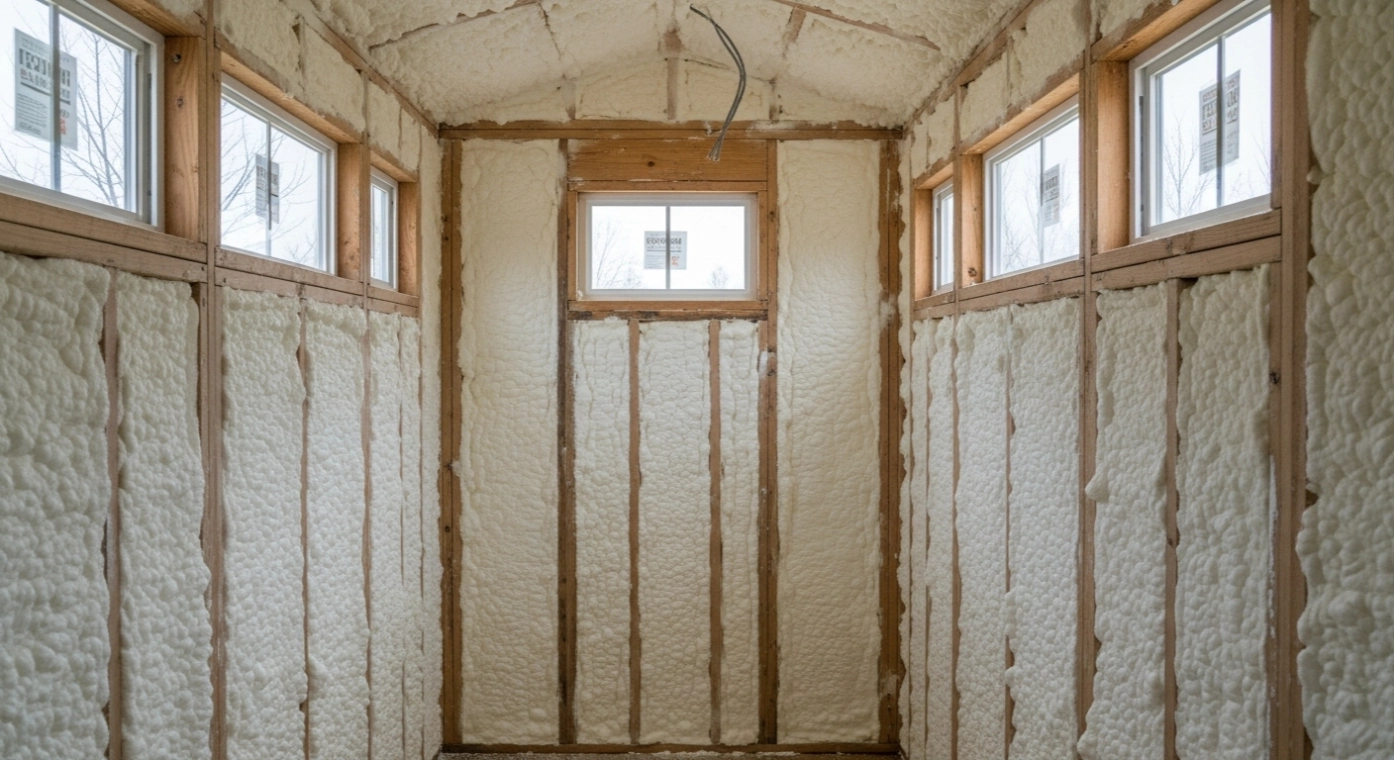
Relevant services provided
- Closed-cell spray foam insulation: Delivers high R-value and moisture resistance for roofs and basements.
- Open-cell spray foam insulation: Provides sound control and air sealing for interior walls.
- Roof insulation: Protects against heat gain and moisture entry, extending roof durability.
- Basement insulation: Reduces humidity problems and strengthens below-grade structures.
Common Questions people ask before installation
Can spray foam be applied in existing homes without major renovation?
Yes. Spray foam can often be installed without tearing down full wall sections. Technicians drill small access points or apply directly in attics, crawlspaces, and basements. Limited removal may be needed in finished walls but full renovation is rarely required.
How long does installation take for a typical residential property?
Most single-family homes are completed in one to three days. The exact time depends on the size of the home, accessibility of insulation areas, and whether open-cell or closed-cell foam is selected.
Is open-cell or closed-cell better for Raleigh’s climate?
Both types are effective but serve different needs. Open-cell works well for interior walls and sound control, while closed-cell is recommended for basements, attics, and roofs where high humidity and heat are constant. A combination is often used for balanced performance.
Will existing HVAC systems need adjustment after installation?
Yes, in many cases. Spray foam reduces air leakage so effectively that HVAC systems may require rebalancing. Oversized systems can short-cycle, so professional assessment is recommended to confirm that airflow and capacity match the new airtight conditions.
Bonus Tip: Always request a blower door test after installation. It confirms that the building envelope is properly sealed.
Summary points
Spray foam insulation addresses Raleigh’s humid subtropical climate by controlling heat and moisture simultaneously. Both open-cell and closed-cell varieties offer strong air sealing, with closed-cell foam providing additional water resistance needed for basements and roofing systems. Experience and data confirm that homes and buildings in Raleigh benefit from reduced energy strain, consistent comfort, and long-term durability.
Contact for professional guidance
For expert insulation services in Raleigh, NC, contact Raleigh Excel Spray Foam Insulation at (919) 301-9435 or email [email protected]. The team provides installation solutions designed to handle the region’s specific climate conditions.
FAQS
How often should spray foam be inspected?
Spray foam requires minimal maintenance, but an inspection every 5–7 years helps confirm no water intrusion.
Can spray foam insulation degrade over time?
High-quality spray foam retains performance for 50+ years if applied correctly.
Does spray foam create issues with roof ventilation?
Proper design addresses ventilation needs. Unvented attics with closed-cell foam perform well in humid climates.
Is spray foam safe for indoor air quality?
Once cured, spray foam is inert and does not off-gas harmful chemicals.
Can spray foam increase property value?
Energy-efficient homes with sealed envelopes are often valued higher in real estate markets, according to the National Association of Realtors (2023).




